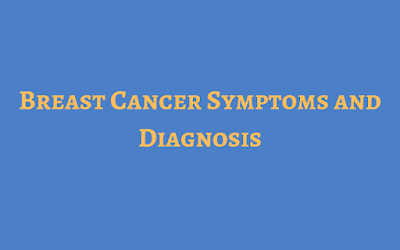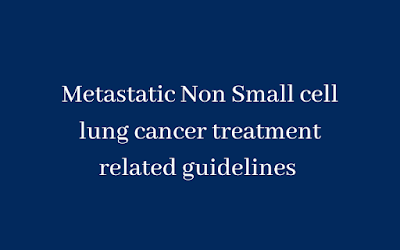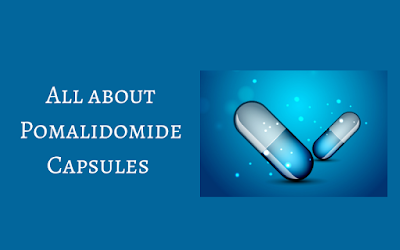Prostate cancer is the development of cancer in the prostate, a specific kind of gland that exists in the reproductive system of males. Most of the prostate cancers usually grow slowly. However, a few grow relatively very quickly.
Initially, there are often no signs and symptoms. When signs and symptoms do appear, they may be like BPH or an enlarged prostate. Prostate cancer may also cause signs and symptoms unrelated to BPH. In case of urinary problems, a respective patient should be instructed to talk with their healthcare professional about them.
Symptoms of prostate cancer can be:
- Dull pain in the lower pelvic area
- Frequent urination
- Trouble urinating
- Pain or burning while urinating
- Weak urine flow
- Blood in the urine
- Painful ejaculation
- Loss of appetite
- Loss of weight
- Bone pain
- Pain in the upper thighs
- Pain lower back or hips
There are several drugs that are useful in the treatment of prostate cancer. These medicines are either used in combination with chemotherapy drug for targeted therapy
1. Abiraterone Acetate: This drug belongs to the CYP17 inhibitor class. It is combined with prednisone for the treatment of patients suffering from metastatic castration-resistant prostate cancer who have at least received any wire chemotherapy combined with docetaxel. This medicine is an inhibitor of CYP2D6 ( hepatic drug metabolism enzyme). This prostate cancer medicine is not co-administered with CYP2D6.
Abiraterone is available in a concentration of 250 mg and is prescribed to take daily or twice daily with or without food.
Some common side effects of
Abiraterone 250 mg include diarrhea, cough, joint swelling, hypokalemia, muscle discomfort, hot flush, hypertension, urinary frequency, edema, and nocturia.
2. Enzalutamide: This drug is basically an androgen receptor inhibitor that is recommended to use for the metastatic castration-resistant prostate cancer treatment, for patients who have received docetaxel therapy.
This drug is present in capsule form of strength 40 mg which is administered orally with or without food. The capsule should be swollen whole.
Some common adverse reactions of this drug are lower respiratory infection, upper respiratory infection, peripheral, peripheral edema, headache, musculoskeletal pain, muscular weakness, tiredness, Insomnia, dizziness, hypertension, anxiety, spinal cord compression, paraesthesia, and fatigue.
Enzalutamide 40 mg is not recommended to be used in pregnant women as it may cause embryo-fetal toxicity.
3. Docetaxel: This drug is a microtubule inhibitor that is used for the treatment of hormone-refractory prostate cancer (HRPC). It is one of the most common chemotherapies in the UK of men having advanced prostate cancer.
This drug is available in injection form of multiple-dose vial strength 20mg/2ml, 80mg/8ml, and 160mg/16 ml.
Some common side effects of this drug are dizziness, weakness, paraesthesia, hypertension, insomnia, musculoskeletal pain, headache, edema, and upper respiratory tract infection.
4. Cabazitaxel: It belongs to the microtubule in a better class that is combined with other medications for the treatment of hormone-refractory metastatic prostate cancer. It is generally used in the patient who has received previous therapy of docetaxel containing treatment.
This therapy is offered when the patient stops responding to docetaxel. It is available in a single vial containing 60mg/1.5ml.
Some common adverse reactions of this injection include vomiting, nausea, diarrhea, neutropenia, anemia, back pain, abdominal pain, pyrexia, peripheral neuropathy, and leukopenia.
5. Darolutamide: This drug belongs to the androgen receptor in a better class drug that works for the treatment of non-metastatic castration-resistant prostate cancer.
It is available in tablet form of concentration 300mg which is administered twice daily.
The most
common side effect of this medication is fatigue, pain, and discomfort
6. Olaparib: This drug is used for the treatment of prostate cancer that is castration-resistant and metastasis which has a mutation in several genes involved in the homologous recombination repair pathway. It is generally used in a patient whose condition has worsened after the treatment of abiraterone or enzalutamide.
Some
common side effects include nausea, nausea, decreased hemoglobin, abdominal pain, decreased white blood cell count, upper respiratory tract infection, anemia, and fatigue.
7. Apalutamide: It refers to androgen receptor inhibitor class medication. This drug is used in the therapy of non-metastatic castration-resistant prostate cancer as well as metastatic Castration sensitive prostate cancer.
It is available in a tablet form of concentration 60 mg which is administered orally once in a day, with or without food.
Some common
adverse reactions of this drug are hair loss, depressed mood, bloating or swelling of face, muscle cramps, muscle pain, husky voice, muscle stiffness, and feeling cold.
8. Degarelix: It is a GnRH receptor antagonist in the treatment of patients suffering from advanced prostate cancer.
This drug is injected intravenously and is available in a single vial of concentration 80 mg and 120 my.
Some
common reactions of this medication are weight gain, hot flashes, redness and swelling in Eyes, injection site pain, and an increase in some liver enzymes.
9. Bicalutamide: It is used in the treatment of stage D2 metastatic carcinoma of the prostate. It belongs to the androgen receptor inverter class truck that is combined with luteinizing hormone-releasing hormone analog.
It is available in tablet form of concentration 50 mg. This tablet is consumed once in a day, with or without food. This drug is contraindicated to be used in pregnant women and patients suffering from hypersensitivity.
Some common
adverse reactions of this medication include blood in urine, bloating and swelling of body parts, headache, difficulty in breathing, cough producing mucus, congestion, dryness of throat, and weight gain.
10. Leuprolide: This medicine is a gonadotropin-releasing hormone used for the treatment of advanced prostatic cancer.
It is available in dual-chamber serials of concentration 7.5mg, 22.5mg, 30mg, and 45mg.
Some
common side effects of this drug are hot flashes, weight gain, mood change, headache, testicle in body, body pain, redness in eyes, and decrease testicle size.
11. Nilutamide: Nilutamide specifically is a nonsteroidal antiandrogen (NSAA) which is prescribed in order to treat prostate cancer.
Nilutamide comes in the form of tablets, acts as a selective antagonist of the androgen receptor (AR), in order to prevent the effects of androgens like dihydrotestosterone (DHT) and testosterone in the body.
Certain side effects in men include breast tenderness and enlargement, hot flashes, sexual dysfunction, and feminization. Nausea, visual disturbances, vomiting, alcohol intolerance, elevated liver enzymes, and lung disease may occur in the both sexes.
12. Rucaparib Camsylate: Rucaparib is used for treating adult patients with a deleterious BRCA mutation linked with mCRPC who have been taken treatment with androgen receptor- directed therapy as well as a taxane-based chemotherapy.
Rucaparib comes in the form of tablets. The recommended dosage needs to be given orally twice in a day either with or without food.
Some most commonly reported adverse reactions of Rucaparib among patients with BRCA-mutated mCRPC include: rash, nausea, fatigue, anemia, ALT/AST increased, decreased appetite, constipation, thrombocytopenia, vomiting, and diarrhea.
13. Goserelin Acetate: As an injectable gonadotropin releasing hormone agonist (GnRH agonist), Goserelin used in order to suppress the production of the sex hormones (testosterone and estrogen), particularly in the treatment of prostate cancer.
Goserelin comes in order to be administered subcutaneously.
This medication may cause hot flashes, bone pain, headache, depression, stomach upset, difficulty urinating (isolated cases), weight gain, swelling and tenderness of breasts, decreased sexual desire and decreased.
NOTE: The piece of information mentioned about "List of Prostate Cancer Medications" in this article is just for the informational purposes and is not served as a substitute for medical treatment, consultation, diagnosis of a qualified doctor.











